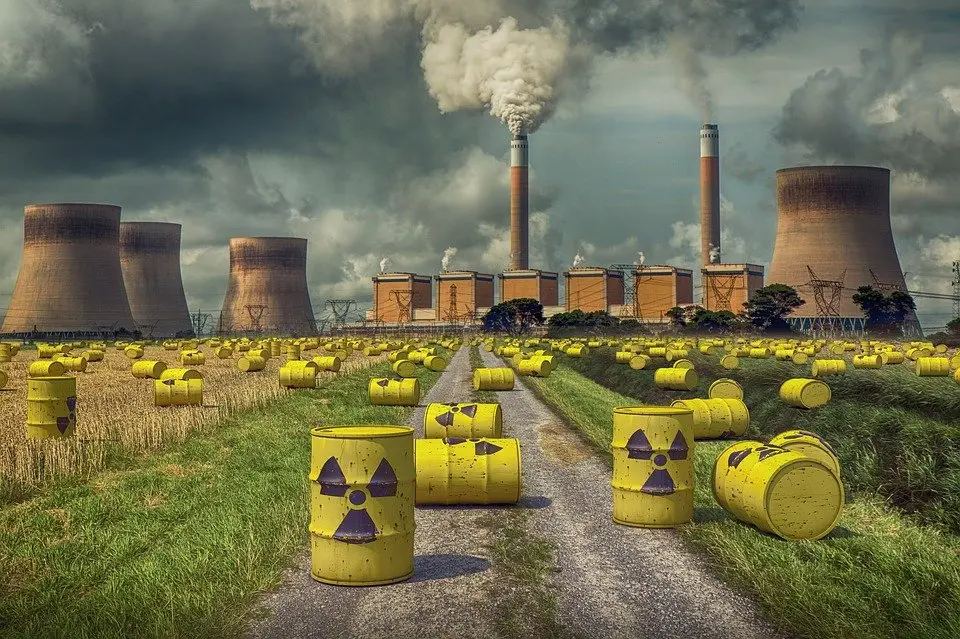France’s toxic trade poisons Caucasus under Orando, Armenia's secret waste deal

In what environmental watchdogs are calling a “new ecological war against Azerbaijan,” recent revelations suggest that France’s nuclear giant Orano has secretly begun transferring uranium-containing radioactive waste to Armenia, near its conditional border with Azerbaijan. The “Environmental Protection First” (EPF) Coalition, a prominent regional alliance of environmental NGOs, issued a powerful statement condemning the act as an outright threat to ecological and public health security.
The first radioactive shipments began arriving in Dilijan National Park, a protected ecological reserve in Armenia’s highlands, as early as June 2025. The source of the waste? Orano, France’s state-owned nuclear fuel corporation, which, due to sanctions against Russia, lost access to its former storage partner in Siberia. With few options left, Orano has allegedly struck a quiet deal with Armenia to offload its toxic legacy.
But this is no routine disposal agreement. The storage site is located in one of the seismically active and ecologically fragile zones in the South Caucasus. Most alarmingly, the Dilijan basin feeds into the Agstafa and Kura Rivers, which cross into Azerbaijani territory, posing a direct risk to the health of local ecosystems and communities in Gadabay, Tovuz, Agstafa, and Gazakh.
More troubling still are the allegations of corruption surrounding the deal. Reports from French investigative outlet Courrier France 24 reveal that, shortly after Armenian Prime Minister Nikol Pashinyan’s February 2025 visit to Paris, two suspicious donations totaling €1.6 million were transferred from a French shell company to Armenia’s “My Step” foundation — chaired by none other than Pashinyan’s wife, Anna Hakobyan. The foundation did not respond to media inquiries. The timing of the donations and the waste transfer has sparked accusations of political and environmental collusion.
In its statement, the EPF warns that this dangerous manoeuvre not only violates basic environmental ethics but also breaches several international treaties, including the Espoo Convention on Environmental Impact Assessment in a Transboundary Context and the Helsinki Convention on the Protection and Use of Transboundary Watercourses and Lakes. Neither Armenia nor France has provided notification or consent to affected downstream nations like Azerbaijan, as mandated under these frameworks.
Armenia has been causing environmental issues in the region for years, severely violating the requirements of existing international agreements. As a result, it continues to pollute the Araz and other transboundary rivers without facing any response from the international community.
The Araz River is contaminated by direct waste discharged from both the Metsamor NPP and various metallurgical plants in the country. Pollution in areas directly connected to this river significantly threatens the lives and health of local residents, as well as the economy and agriculture.
Armenian authorities, for their part, have dismissed the media reports as “disinformation.” But there’s a telling silence where there should be scrutiny. No independent inspection has been permitted. No clarification from Yerevan about the safety protocols or impact assessments. No consultation with Azerbaijan or international environmental monitors. In fact, the International Atomic Energy Agency (IAEA), which would typically oversee such operations, appears to have been bypassed entirely.
The EPF’s call for joint environmental monitoring, including the participation of Azerbaijani NGOs and international bodies, is not only reasonable—it’s urgently necessary.
More broadly, this scandal lays bare a disturbing trend: the export of nuclear waste from wealthier nations to geopolitically convenient but environmentally vulnerable ones. France, which has already been accused of dumping radioactive waste into the waters of its former colonial territories, now appears to be perpetuating a modern form of green colonialism, hiding its nuclear footprint behind the political smokescreen of “strategic partnerships.”
Perhaps, it is a regional crisis, one that threatens to reignite environmental tensions and undermine trust across the South Caucasus. Toxic waste knows no borders. Neither should accountability.
Here we are to serve you with news right now. It does not cost much, but worth your attention.
Choose to support open, independent, quality journalism and subscribe on a monthly basis.
By subscribing to our online newspaper, you can have full digital access to all news, analysis, and much more.
You can also follow AzerNEWS on Twitter @AzerNewsAz or Facebook @AzerNewsNewspaper
Thank you!

